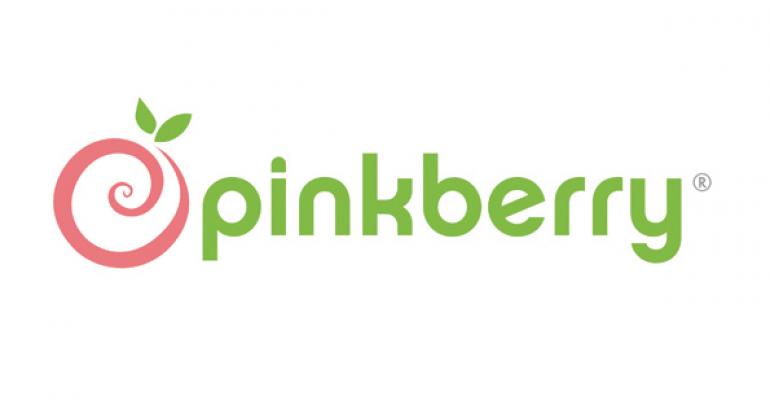Frozen yogurt magnates Michael Serruya and Aaron Serruya have been called “Canada’s first family of freeze” in the Canadian press. But at their current pace, the brothers will have that title in the U.S., too.
In 2013, the Serruyas bought a controlling interest in Kahala Brands, the multi-concept operator based in Scottsdale, Ariz. After CEO Michael Serruya took a year to learn about the company and the landscape, Kahala has gone on a buying binge.
In June, the company bought Planet Smoothie and Tasti D-Lite. It followed those purchases with the November acquisition of another smoothie concept, Maui Wowi. But perhaps its biggest deal came this month, with the acquisition of Pinkberry, the chain widely considered to be Patient Zero in the current frozen yogurt boom.
And Serruya suggested that Kahala isn’t done, particularly in the treat space, where the company has been especially aggressive.
“The space is prime right now for consolidation,” he said. “There are a lot of players out there — regional players — or they operate in certain markets and can really benefit from the synergies and operating strength we have at Kahala.
“We think we are poised and in the right position to be able to do that.”
Michael and Aaron started Yogen Früz in Ontario, in 1986, when Michael was 20 years old and Aaron was 19. The chain, which Aaron runs, currently has 1,400 locations around the world. They also own the Swenson’s ice cream brand, which has 480 locations, and I Can’t Believe It’s Yogurt. Additionally, they have launched a self-serve yogurt chain, Yogurty’s, in Canada. Michael Serruya has also served as a board member at Jamba Juice.
“We’ve been around the frozen dessert sector for 30-plus years,” Michael Serruya said. “It’s the only sector my brother and I know. It’s what we do. We love it. It’s in our veins.”
They took on a lot more than just treats in 2013, when they acquired a controlling interest in Kahala. The branding company owns several concepts, notably Cold Stone Creamery, as well as Blimpie, Taco Time and Samurai Sam’s Teriyaki Grill.
“We’re really excited,” Serruya said. “We’ve always been intrigued with the multi-branded franchise platform they created. It’s unique in North America, and you can count on one hand the number of companies that do the same thing.”
So he spent the first year getting confident with the company’s management team, and to ensure that it had “depth on the bench” to expand its holdings.
“We have a fantastic team,” he said. “I feel very strong about their capabilities. It encourages us to make acquisitions.”
Serruya said that Cold Stone is heading in the right direction. The hard-pack ice cream concept now has more than 1,000 locations, half of them international. Same-store sales have grown 8 percent this year, he said, on top of a 5-percent increase last year. “We’re feeling great about the business,” he said.
Kahala believes there are plenty of potential targets in the smoothie and treat chain categories. But Serruya also said that the company could make deals in other sectors as well, particularly in categories the company doesn’t operate in, as well as categories it does. In those cases, a deal could make sense “from a synergistic point of view.”
Pinkberry was a huge get for Kahala. Serruya said he had tried “numerous times over the last three to four years to try and buy it” to no avail.
“Pinkberry is one of the unique brands that seldomly comes around,” he said. “It’s a special type of brand that manages to captivate the imagination of consumers. It’s an incredible phenomenon.”
He also said that Pinkberry has some strong international operators who have been driving its overseas growth. Serruya added that the brand’s focus going forward will be on the marketing and product innovation that made it strong in the first place.
But Pinkberry faces stiff competition. In the years since its founding in 2005, it has spawned dozens of competitors around the country. It’s clearly having an impact on the chain, where unit volumes declined by more than 16 percent last year.
Yet Serruya noted that Pinkberry still has the highest average unit volumes in the yogurt sector. “It’s a very crowded category,” Serruya said. “Pinkberry is viewed as the gold standard.”
“What is needed as a whole is there are too many players operating too many stores in too small a market,” Serruya said. “It’s rebalancing itself now. That’s a good thing for the industry as a whole.”
Kahala now operates 18 brands with more than 3,000 locations, although all but a small handful are franchise operated. The company typically moves the headquarters of the brands it acquires to Scottsdale. But Serruya said that the brands are operated separately while sharing some functions such as accounting and legal.
“They have their own silos,” he said. “But they have the ability to lean on the vast infrastructure we have here. We’ve always recognized the importance of growing a brand is always about giving it its own identity. We’re conscious not to cross-pollinate.”
Correction: Dec. 17, 2015 An earlier version of this article misidentified which chains Kahala Brands purchased in June. They are Planet Smoothie and Tasti D-Lite.
Contact Jonathan Maze at [email protected].
Follow him on Twitter: @jonathanmaze

